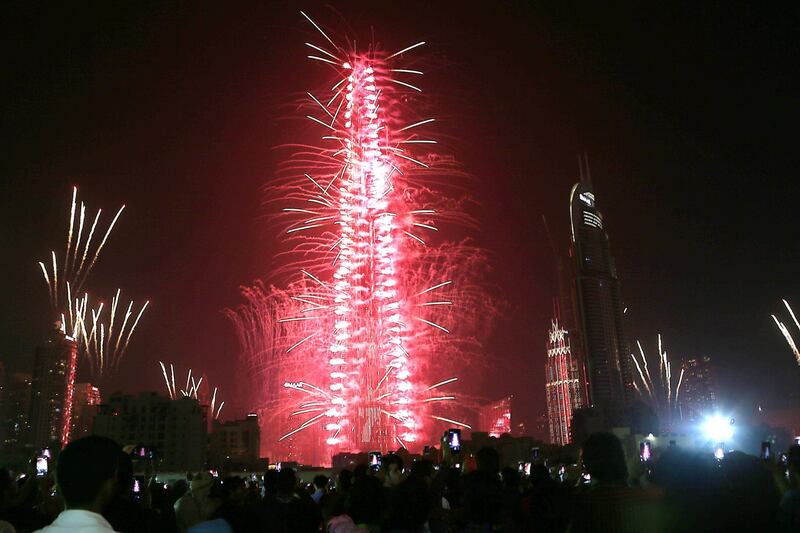It is just over a couple of months now before the UAE transitions from essentially a zero-tax environment to one in which VAT will be a fact of life, and for many businesses and consumers, a painful one.
I speak regularly to baristas, shop assistants and hotel receptionists to see if they know the effect VAT is going to have on the prices in the establishments they work. Most of them seem unaware that VAT is coming. Those who are aware don’t know what they are going to do. They suggest I speak to the manager. If the manager is there, I do. The manager invariably tells me they are not sure either.
Introducing VAT is difficult. The UK did so in 1973, a couple of years before I was born, so I don’t personally remember the immediate effect. The UK did already have a purchase tax (albeit one not imposed at the point of sale) so the practical, economic and cultural transition was likely rather less severe than in the UAE, particularly as the VAT that replaced it was introduced at a lower rate. Incidentally, the top rate of income tax in the UK in 1973 was 75 per cent, and it went up the following year to 83 per cent. No wonder everyone in England looked so miserable in photographs in the 1970s.
However, I am old enough to remember 2010 when the UK increased the rate of VAT from 15 per cent to 17.5 per cent, having temporarily reduced it following the financial crisis in 2008, and 2011 when it was raised again to 20 per cent.
Detailed “anti-forestalling” rules prevented businesses from artificially triggering tax points early to apply the lower rate of VAT. It’s worth noting that in both cases, although the UK ended up with a much higher rate of VAT, each percentage increase was still less than it will be in the UAE. There is considerable incentive for businesses to try to avoid VAT by bringing forward the tax point to before January 1 2018.
The transitional provisions in the Federal Decree-Law No. (8) of 2017 on Value Added Tax are underwhelming. For example, Article 25 provides, in relation to the supply of services, that the date of supply will be the earlier of any of the following:
• The date on which the services will be completed
• The date on which the invoice was issued
• The date of receipt of payment
Although not explicitly stated, this suggests that a business that has paid for services before January 1 2018 should not have to charge VAT if the services are supplied on or after January 1. This provision is not completely on point: it is clearly aimed at the situation where all three dates are on or after January 1.
________
Read more:
Who will bear the burden of VAT in the UAE?
'Don’t stress about VAT in the UAE - it’s not complicated at all'
Tax in the UAE: Everything you need to know about VAT and a little bit more
________
At the time of writing, we still haven’t seen the Executive Regulation, which will provide much needed clarity on important points. It’s quite possible that the Executive Regulation will provide additional detail on transition; the Decree-Law states “The Executive Regulation of this Decree-Law shall set forth special provisions related to the implementation of this Decree-Law where a contract has been concluded before the effective date of the Decree-Law but the supply under the contract is wholly or partly made after the effective date of this Decree-Law”. The overriding GCC Framework Agreement permits, but does not oblige, member states to ignore the pre-2018 date of invoice or payment and treat the services as supplied when the supply physically occurs, even if they were paid for or invoiced in 2017.
Saudi Arabia, which is furthest ahead of the GCC countries in publishing its suite of VAT legislation, has done just this. If a supply is made in 2018, VAT is due even if paid and invoiced in 2017 or, for that matter, 2016.
If the UAE were to follow this approach, then what would happen? Here is a very plausible example. On December 1, I purchase a ticket to watch the forthcoming Star Wars blockbuster sequel The Last Jedi in the cinema on January 1 2018. The cinema cannot charge me an amount in respect of VAT on December 1 because VAT will not, at that stage, exist. However, that service is supplied to me on January 1, when VAT does exist. The suggestion seems to be that the cinema would issue a VAT invoice on January 1 and, whether it can or cannot make an additional charge to me in respect of VAT, will depend on its terms and conditions. In practice, it may be unlikely that suppliers will seek to pass on the VAT cost to the customer.
A further complexity: if I never turn up to watch the movie on January 1, what is the VAT position? The supply is, after all, never made.
Han Solo famously made the Kessel run in the Millennium Falcon in less than 12 parsecs. I would be more impressed if he and his spaceship could successfully navigate the intricacies of the VAT transitional rules in less than three months. My lack of faith that most businesses will be able to is, indeed, disturbing.
Jeremy Cape is a tax lawyer at Squire Patton Boggs, which has offices in London, Dubai and Abu Dhabi. Follow him on Twitter @jeremydcape






